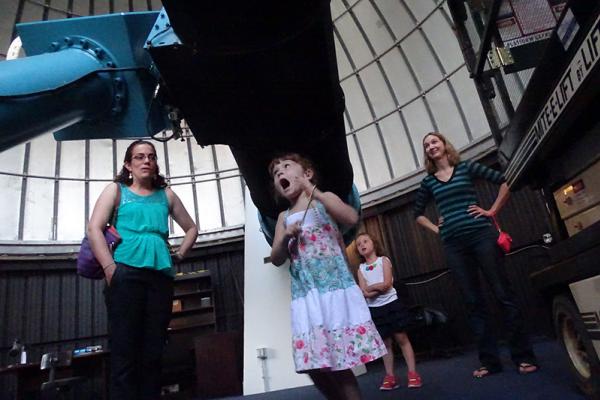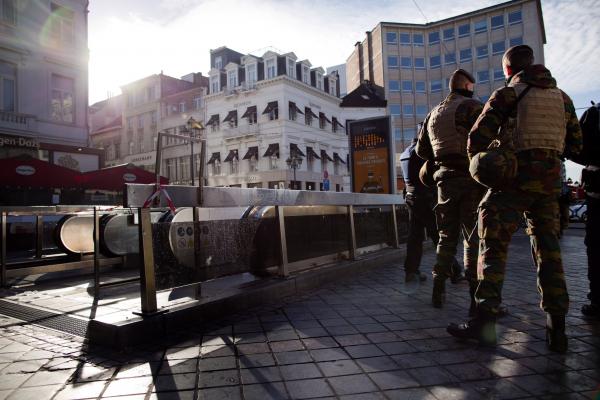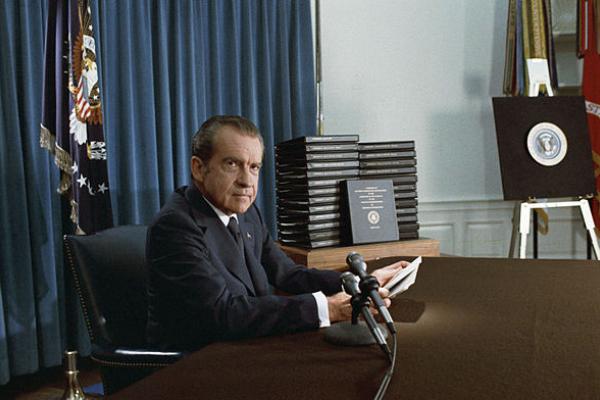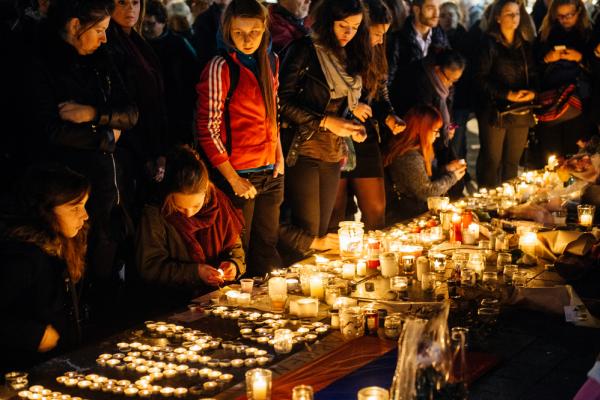Amid the helium balloons, dance music, chants, and counterchants, Katie Stone and Katie Breslin spelled out their opposing views outside the Supreme Court as the justices inside heard one of the most contentious cases of the year. The two 20-something Christians, both motivated by faith, say the justices’ ruling in Zubik v. Burwell could affirm or weaken the most basic of rights. The case asks whether religious nonprofits must comply with the Affordable Care Act’s contraception mandate, or whether it violates the federal law that sets a high bar for government infringement on religious rights.
Pope Francis is expected to meet a young girl from Ohio who dreams of seeing the pontiff in person before she loses her eyesight, according to a Catholic organization that supports sick and disabled pilgrims. Five-year-old Lizzy Myers from Bellville, north of Columbus, suffers from an incurable genetic disease known as Usher syndrome, which leads to blindness and hearing loss.
I am this broken and bleeding world.
I am Brussels, blown apart, the strewn limbs, the piercing wail of a mother for her baby.
I am Yemen, at the marketplace, charred bodies of children face-down in the dust.
I am Syria, families cramming into boats as guns and missiles chase them from the shore.
I am Afghanistan, Pakistan, Iraq, Libya, Somalia, pockmarked by bomb blasts, orphaned children hiding away from clear blue skies.
I am the growling of empty bellies drowned by the sound of gold pouring into the bottomless coffers of the war machines as they devour their sustenance and spit out death in return.
I am generation upon generation of silenced and vanished victim buried in the ground and trampled.
I am slain from the foundation of the world.
If Dana Carvey’s Church Lady wrote a craft book, it would look a lot like What Would Jesus Craft?: 30 Simple Projects for Making a Blessed Home. Born out of a lifelong collection of just plain wacky stuff gathered by author Ross MacDonald, the book blends tongue-in-cheek satire with tender regard for a 1950s Christian sensibility to serve up do-it-yourself craft projects that would make Jesus weep.
In the space between Palm Sunday and Good Friday, between the acclaiming of Jesus as a king and his execution as a threat to the political order, I was no more ready to read the news this morning. The stifling, exhausting repetition of violence and terrorism is both all too common but still shocking. And yet, I hope that Christians in particular can draw upon the narrative arc that moves us from Jesus’ triumphal entry to his seeming defeat on Calvary.
While Speaker of the House Paul Ryan’s speech to a committee room full of interns on March 23 focused on restoring civility to political discourse, the speech also contained a surprising twist. Ryan, who has publicly endorsed the writings of Ayn Rand, admitted, “I’m certainly not going to stand here and tell you I have always met this standard” of civility.
I arrange my Mondays around a certain ritual, a yoga class taught by my gifted teacher, Mireille (Mimi) Mears. She’s from Belgium. From Charleroi, to be exact. It's about 30 miles away from Brussels. Her nephew lives a few minutes away from the attack site with his wife and three children under the age of 6. Mimi always closes our class with a ritual, this prayer/meditation/homily (with her beautiful Belgian accent) and yesterday was no exception.
The actions of the shooters like those in San Bernardino, Paris, and very probably Brussels are difficult for most people to understand. But the work of scholars specializing in extremism can help us begin to unravel how people become radicalized to embrace political violence.
Security experts Alex Wilner and Claire-Jehanne Dubouloz define radicalization as a process during which an individual or group adopts increasingly extreme political, social, or religious ideals and aspirations. The process involves rejecting or undermining the status quo or contemporary ideas and expressions of freedom of choice.
Newly radicalized people don’t just agree with the mission and the message of the group they are joining — they embrace the idea of using violence to induce change.
Rarely is racism confessed so baldly.
John Ehrlichman, domestic policy chief for Richard Nixon, admitted in 1994 that the "war on drugs" was a way to "criminalize" the ant-war left and black people, and "disrupt those communities," according to a recent article from Harper's Magazine.
Ehrlichman was known as a close adviser to Nixon, and served 18 months in prison for his role in the Watergate scandal.
"Instead of preaching, perhaps what is more appropriate is, in fact, confession of how hard it is to actually love our enemies,” says Pastor Jarrod McKenna.
Though this video reflection for Common Grace’s Love Thy Neighbour campaign was filmed a few weeks ago, its pre-scheduled release today goes right to the heart of enemy love and offers a Christian response to terrorism in the days after shocking attacks in Brussels, Istanbul, and elsewhere.
“This teaching is the most often quoted teaching of the early church, because it is the teaching that sums up the cross the easiest,” he says.








